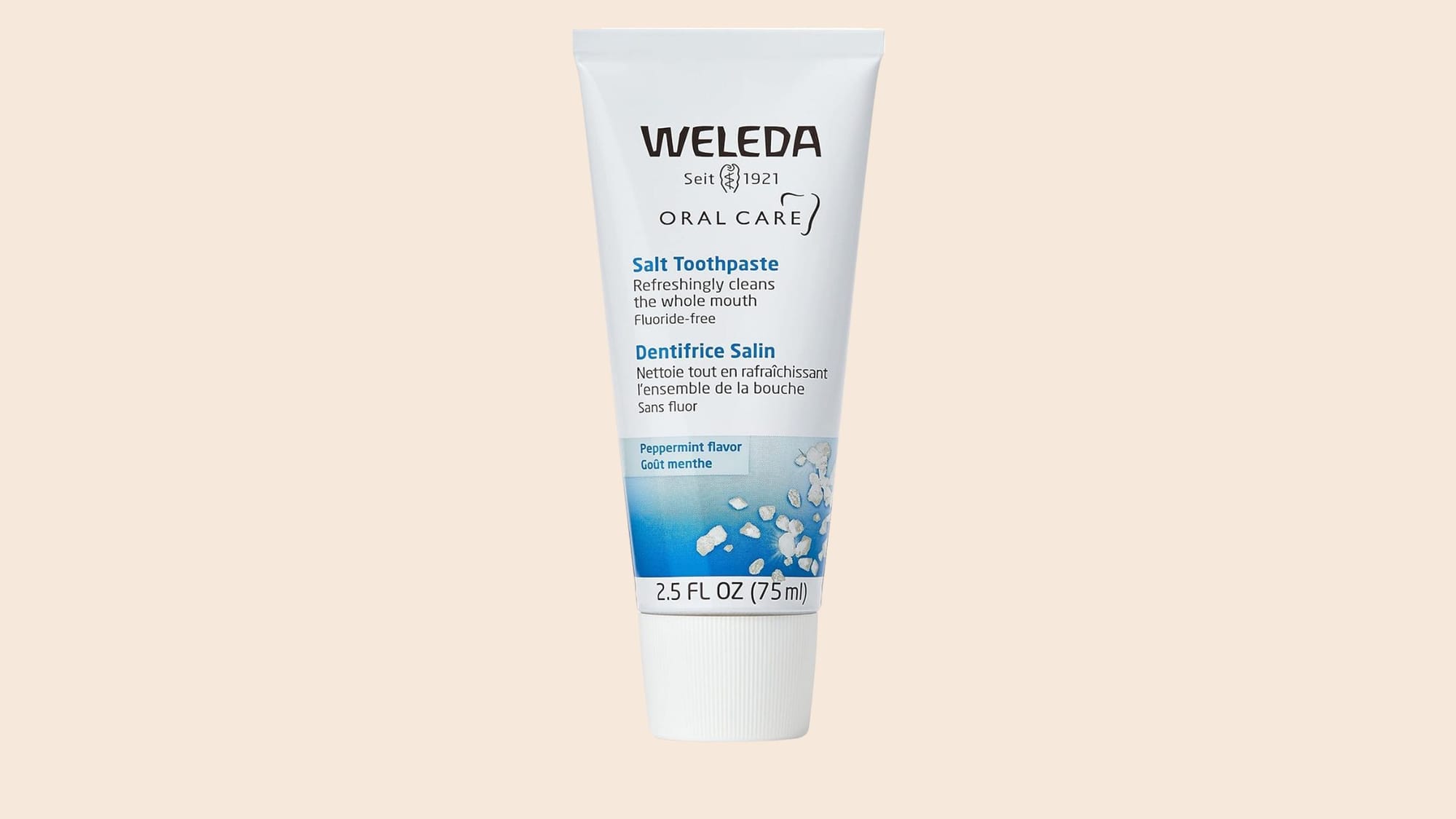German New Medicine 101: Teeth and Jaw [Part 8]
In today's German New Medicine post, we will discover how our emotional conflicts may affect our teeth and jaw health as well as how to recover from these dental conditions with the GNM approach.

German New Medicine (GNM) offers a unique perspective on teeth and jaw health, emphasizing the connection between our emotions and physical conditions.
According to GNM, the health of our teeth and jaw is closely linked to unresolved emotional conflicts and stresses in our daily lives. By understanding and addressing these emotional triggers, we can not only improve our dental health but also enhance our overall well-being. In this approach, it's believed that our teeth and jaws can reflect our ability to "bite back" in life, handle stress, and assert ourselves. This holistic view encourages us to look beyond modern dental care and consider the emotional roots of our teeth and jaw-related conditions.
In today's German New Medicine post, we will discover how our emotional conflicts may affect our teeth and jaw health as well as how to recover from these conditions.
Table of Contents
The Connection Between Emotions and Physical Health
The Role of Emotional Conflicts in Teeth and Jaw Conditions
Teeth and Jaw Conflicts
How To Recover Teeth and Jaw Conditions with GNM?
Natural Remedies To Apply For Common Teeth and Jaw Conditions
What Are The Best Foods For Teeth And Gum Health?
How To Never Get Cavities Again?
Frequently Asked Questions About German New Medicine
Conclusion
The Connection Between Emotions and Physical Health
Teeth as Tools of Expression and Defense
Our teeth play a crucial role in how we express ourselves and defend against challenges. Think of the expression "showing your teeth"—it signifies assertiveness and readiness to defend oneself. Similarly, in GNM, teeth are seen as symbols of our ability to "bite back" when faced with conflicts.
If we feel unable to stand up for ourselves or express our needs and emotions, it might affect our dental health. For example, stress from feeling powerless or unable to confront a difficult situation can lead to dental issues, highlighting the emotional significance of our teeth.
Jaw as the Framework of Strength and Support
Our jaw represents the foundation of our strength and support. It is integral not only in chewing and speaking but also in expressing our inner power and stability. When we "clench our jaws," it often means we are trying to endure a difficult situation or showing determination.
According to GNM, problems with the jaw, such as tension or pain, can reflect emotional stresses related to our sense of stability and control. If we feel unsupported or unable to cope with life's pressures, it can manifest as jaw issues, underscoring the emotional connection to this critical part of our body.
The Role of Emotional Conflicts in Teeth and Jaw Conditions
In German New Medicine (GNM), emotional conflicts play a significant role in the health of our teeth and jaws. Understanding "bite conflicts" is key—these conflicts can be literal, like having trouble chewing food, or figurative, like feeling unable to stand up for yourself in stressful situations. Common triggers for these conflicts include challenging relationships and situations in the workplace, family, or social circles.
For example, conflicts with a boss, arguments with family members, or peer pressure can make us feel undervalued and unable to "bite back." These feelings of inferiority and helplessness can directly impact our dental health. When we feel powerless or less capable than others, it creates emotional stress that can manifest as dental issues, such as cavities or jaw pain.
Understanding these connections helps us see the importance of addressing our emotional well-being to maintain healthy teeth and jaws.

Teeth and Jaw Conflicts
Incisors (Front Teeth)
Emotional Conflict: Incisors are primarily used for biting and cutting food. The related emotional conflict is not being able to "bite" or "snap" at someone, whether literally or figuratively. This can manifest as feeling unable to defend oneself or take action in a confrontational situation.
Canines (Corner Teeth)
Emotional Conflict: Canines are used for gripping and tearing food. The emotional conflict here involves not being able to "snatch" or "tear into" something or someone. This can represent a struggle to assert dominance or control in a competitive environment.
Molars (Back Teeth)
Emotional Conflict: Molars are for crushing and chewing food. The related conflict is not being able to "crunch" or "grind" an opponent. This can symbolize feeling powerless to break down problems or challenges, leading to frustration and helplessness.
Tooth Decay (Caries)
Emotional Conflict: An "oral conflict" related to not being able to "bite into" something or someone. This can be a metaphorical representation of feeling unable to tackle a problem or stand up for oneself.
Root Canal Issues
Emotional Conflict: A deep-rooted "attack conflict" or "self-devaluation" issue, often involving long-standing feelings of not being good enough or being attacked or criticized.
Tooth Discoloration
Emotional Conflict: Linked to "feeling soiled" or "feeling attacked." Discoloration can represent feelings of shame or embarrassment.
Gum Disease (Periodontitis)
Emotional Conflict: A conflict of "lack of support" or feeling unsupported. This can relate to feeling unappreciated or alone in facing challenges.
Jaw Pain (TMJ Disorders)
Emotional Conflict: Related to a "self-devaluation conflict" and issues around expressing oneself or feeling powerless. This can also relate to feeling unable to assert oneself or "bite back."
Teeth Grinding (Bruxism)
Emotional Conflict: Often associated with unresolved anger, frustration, or stress. This can be linked to feeling unable to express these emotions openly.
Misaligned Teeth (Malocclusion)
Emotional Conflict: Connected to conflicts involving "direction" in life or feeling out of place. This can symbolize internal conflicts about one's path or choices.
Abscessed Tooth
Emotional Conflict: Represents a "decay conflict," where something is perceived as being corrupted or infected within one's life, often associated with intense anger or resentment.
Tooth Sensitivity
Emotional Conflict: Tied to feeling overly sensitive to criticism or conflict. This can represent a heightened emotional response to perceived threats or challenges.
Dentin Issues (e.g., Dentin Caries)
Emotional Conflict: Linked to a "self-devaluation conflict" specifically around the "hard core" of one's being. It can involve feeling deeply attacked or judged at one's core.
Jaw Bone Conflicts
The jaw bones, including the maxilla (upper jaw) and mandible (lower jaw), are crucial for biting and chewing. According to GNM, conflicts affecting the jaw bones are often more intense and deeply felt. These conflicts typically involve:
Self-Devaluation: Feeling inferior, inadequate, or powerless. This can be due to various situations such as workplace issues, family dynamics, or social interactions where one feels undermined or devalued.
Impact on Jaw Health: Prolonged self-devaluation conflicts can lead to jaw bone decalcification (osteolysis), making the teeth loose and the gums recede. Severe conflicts might cause significant jaw pain, swelling, and even the risk of tooth loss.
Also Read:


How To Recover Teeth and Jaw Conditions with GNM?
Recovering from teeth and jaw conditions through German New Medicine (GNM) involves understanding and addressing the underlying emotional conflicts that manifest as physical symptoms. Here’s how you can approach this healing process effectively:
1. Identify the Root Conflict
The first step in GNM is to pinpoint the specific emotional conflict responsible for your dental or jaw issues. According to GNM, every physical symptom is linked to a particular type of emotional distress. For teeth and jaw conditions, this might include conflicts related to self-devaluation, feeling powerless, or being unable to "bite back" in certain situations. Identifying the root conflict requires introspection and self-awareness, often guided by understanding the symbolic roles of teeth and jaws in expressing strength and defense.
2. Practice Self-Reflection Techniques
To identify these underlying conflicts, self-reflection techniques can be invaluable. Here are a few tools to help you delve deeper into your emotions:
- Journaling: Writing about your feelings, daily experiences, and any recurring thoughts can help uncover patterns and specific conflicts. Reflect on moments when you felt undervalued or unable to assert yourself.
- Meditation and Mindfulness: Practices that promote mindfulness can help you become more aware of your thoughts and feelings. During meditation, pay attention to any recurring thoughts or emotions related to your teeth or jaw issues.
- Therapeutic Conversations: Speaking with a therapist or counselor can provide an external perspective and help you identify emotional conflicts that you might not recognize on your own.
3. Recognize Conflict Triggers
Once you have identified potential conflicts, the next step is to recognize what triggers these emotions in your daily life. Here are some common scenarios and personal experiences to watch for:
- Workplace Dynamics: Situations where you feel undervalued, criticized, or unable to assert your opinions can trigger self-devaluation conflicts. Pay attention to interactions with colleagues and superiors that make you feel powerless or insignificant.
- Family Relationships: Conflicts within family dynamics, such as feeling overshadowed by a sibling or undermined by a parent, can significantly impact your emotional health. Notice any recurring family interactions that leave you feeling less than others.
- Social Interactions: Social settings where you feel judged, excluded, or unable to express yourself freely can also contribute to dental and jaw conditions. Reflect on social situations where you hold back from speaking up or defending yourself.
4. Develop Conflict Resolution Strategies
After identifying and recognizing your conflict triggers, it's important to develop strategies to resolve these emotional conflicts. Here are some approaches:
- Assertiveness Training: Learning to express your needs and defend your boundaries can help you resolve conflicts related to feeling powerless. Practice speaking up in a calm and confident manner.
- Building Self-Worth: Engage in activities that boost your self-esteem and reinforce your value. Positive affirmations, setting small achievable goals, and celebrating your successes can help build a stronger sense of self-worth.
- Emotional Support: Seek support from friends, family, or support groups. Sharing your experiences with others who understand can provide comfort and new insights into resolving your conflicts.

What Are Natural Remedies For Common Teeth and Jaw Conditions?
The dental industry has increasingly gained a reputation for its overly aggressive approach, where patients often feel pressured into undergoing unnecessary procedures.
My own experience underscores this issue! I visited four different dentists, and each recommended a different procedure, ranging from fillings to root canals, often without thorough explanation or justification. This "shark" mentality can be overwhelming and costly for patients.
In contrast, "Ayurvedic dental services" offer a holistic alternative, emphasizing the connection between oral health and overall well-being. Unlike allopathic dental services, which can be detrimental by killing nerves, Ayurvedic practices focus on preserving the natural state of teeth and gums by using herbal remedies and less invasive techniques.
This approach not only aims to treat dental issues but also seeks to maintain harmony within the body, aligning with a broader view of health and wellness.
While this is the case, we started looking for natural remedies. Here are some natural remedies to apply for teeth and jaw conditions, based on German New Medicine and Ayurvedic treatment practices:

1. Do NOT Use Toothpaste With Fluoride
First things first, stop brushing your teeth with toothpaste including fluoride! Research suggests fluoride exposure can lead to dental fluorosis, thyroid dysfunction, and potential developmental issues in children. Also, accumulated fluoride in your body can cause harm to your kidneys, liver, and brain. So you should go for fluoride-free toothpaste for safer dental care. You can try Weleda Salt Paste as the best alternative instead of fluoride toothpaste.
2. Saltwater Rinse With Baking Soda
Saltwater is a natural disinfectant that helps to reduce bacteria in the mouth, which can contribute to gum disease and bad breath. Baking soda, also known as sodium bicarbonate, helps to neutralize acids in the mouth and can gently scrub away plaque buildup on teeth, thus promoting oral health.
3. Oil Pulling
Oil pulling involves swishing oil, such as coconut oil or sesame oil, around in the mouth for several minutes. This practice is believed to help remove bacteria, toxins, and plaque from the mouth, which can improve oral hygiene and reduce the risk of gum disease and cavities.
4. Baking Soda (Sodium bicarbonate)
Baking soda is mildly abrasive and can help to remove surface stains on teeth caused by coffee, tea, and other substances. It also has antibacterial properties that can help to reduce the bacteria in the mouth, thus promoting oral health.
5. Use Herbal Oils
Certain herbal oils, such as tea tree oil, oregano oil, and clove oil, have antimicrobial properties that can help kill bacteria in the mouth. Using these oils as part of a mouthwash or toothpaste may help to reduce plaque formation, gingivitis, and bad breath.
What Are The Best Foods For Teeth And Gum Health?
The best foods for teeth and gums are organic butter from grass-fed cows and cod liver oil because they are loaded with vitamins and fatty acids that are good for your teeth and gums.
Why are these two foods so good for your teeth and gums? Because they are loaded with vitamins A, D, K2, and F, as well as omega-3 fatty acids. These vitamins and fatty acids all play a role in keeping your teeth and gums healthy.
- Vitamin A: Vitamin A is important for the health of the mucous membranes in your body, including the gums. A deficiency in vitamin A can make you more susceptible to gum infections.
- Vitamin C: Vitamin C is important for keeping the connective tissue in your gums strong and healthy. It also helps to prevent bleeding gums.
- Vitamin D: Vitamin D helps your body absorb calcium, which is essential for strong teeth.
- Vitamin K2: Vitamin K2 helps transport calcium to the right places in your body, including your teeth.
- Vitamin F (omega-3 fatty acids): Omega-3 fatty acids help to reduce inflammation throughout the body, including in the gums.
How To Never Get Cavities Again?
Tooth cavities are caused by the mouth acid breaking down tooth enamel. Bacteria produce this acid in the mouth by feeding on sugar. That's why sugary drinks and candies are the most common reasons for getting cavities.
According to Dr. Berg, we can avoid cavities by replacing sugar with alternative sweeteners such as xylitol, stevia, or throttle. The good news is that you can find many recipes available online for desserts made with these alternative sweeteners instead of sugar.
Frequently Asked Questions About German New Medicine
1. What is the concept of German new medicine?
German New Medicine (GNM) is a holistic approach to understanding health and disease developed by Dr. Ryke Geerd Hamer in the 1980s. It proposes that every disease, including cancer, originates from a biological conflict, which is a sudden, dramatic event that shocks the psyche and triggers a specific response in the body.
GNM views the mind, body, and spirit as interconnected and emphasizes the importance of addressing emotional and psychological factors in healing. It challenges traditional medical paradigms by suggesting that diseases are meaningful biological responses rather than random occurrences.
2. What is the GNM conflict theory?
The GNM conflict theory posits that biological conflicts, also known as DHS (Dirk Hamer Syndrome), are the root cause of all diseases. According to GNM, conflicts arise from unexpected shocks or traumas that disrupt an individual's emotional equilibrium. These conflicts impact specific areas of the brain, triggering corresponding physiological responses in the body.
GNM categorizes conflicts into various themes based on the nature of the shock and the associated bodily response. The resolution of the conflict leads to the healing phase, during which the body undergoes specific biological processes to restore equilibrium and repair any damage caused during the conflict-active phase.
3. What is the new Germanic healing?
New Germanic Healing refers to the therapeutic approach derived from the principles of German New Medicine. It emphasizes understanding and addressing the root causes of illness, primarily through resolving biological conflicts and supporting the body's natural healing mechanisms.
New Germanic Healing acknowledges the interconnectedness of the mind, body, and spirit and advocates for a holistic approach to health and wellness. This may involve techniques such as stress reduction, emotional release, nutritional support, and lifestyle modifications to promote healing and restore balance on all levels of being.
Conclusion
In conclusion, German New Medicine (GNM) underscores the profound connection between emotional well-being and dental health, offering insights that reshape our understanding of oral conditions. By recognizing the role of biological conflicts in dental issues, GNM guides individuals towards comprehensive healing, from dentin regeneration to jaw muscle support.
As we prioritize emotional wellness alongside traditional dental care, we lay the groundwork for holistic health. Let us embrace stress reduction, emotional release, and self-care practices to foster harmony between mind, body, and spirit, empowering ourselves toward vitality and well-being.


